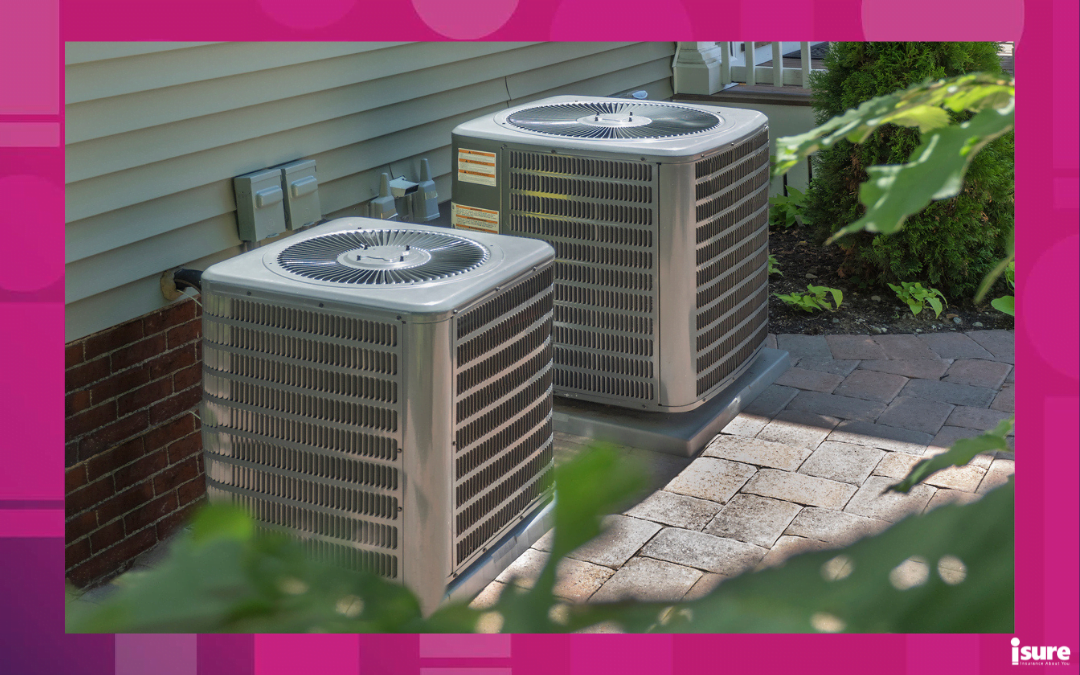An HVAC system at your home can be a lifesaver during intense temperature rises or drops. Nothing is better than coming home to a toasty house in the winter or an air conditioned home in the summer. But what happens if your unit breaks down? If you’re looking into getting a new HVAC system installed in your home or need to fix the one you have, you be asking yourself some questions. Is HVAC coverage included in my policy? Will my insurance cover repairs or replacement costs? We’ve got everything you need to know about HVAC coverage for your home.
What exactly is an HVAC system?
To begin, you first need to understand what HVAC stands for. It’s an acronym for Heating, Ventilation and Air Conditioning. This system helps control the temperature of your home. It keeps your home cool in the summer and warm in the winter. Additionally, your HVAC system plays a vital role in making sure your home is properly ventilated and has fresh, high-quality air. The HVAC system provides oxygen and removes dust, heat and smoke from inside the home. Without an HVAC system, you may find that your home has stagnant air. This can lead to things, like allergies and dry air.
An HVAC system can be a sizeable investment for some people. By keeping it in good working condition, you can ensure your home has high-quality air without having to pay for any repair bills.
Do I have HVAC coverage through my home insurance policy?
Whether or not your HVAC system is included in your policy depends on a few things. There are many circumstances where you will be protected in case something happens, while some instances will result in a denied claim. In order to figure out if you are covered, you must first remember that your policy is not a maintenance plan. If your HVAC system breaks down due to normal wear and tear, you will unfortunately not have coverage. An example of this is neglecting your HVAC system for 10+ years, resulting in it breaking down due to lack of repairs. In situations like this, you will have to pay out-of-pocket for a new system.
On the other hand, there are situations where you may have HVAC coverage through your policy. If your unit is covered as part of your named perils coverage, you will have sufficient coverage for repairs. For example, if you are the victim of a flood that causes water damage to your home and your HVAC system, your provider may be able to assist you financially in repairing or replacing your unit.
How much does it cost to replace my HVAC system?
If you have to replace your home’s HVAC system, you’re going to be looking at a hefty chunk of change. The price of a new system without ducts will cost you anywhere between $5,000 to $10,000. This includes the unit itself and the installation. If you need ductwork done, you’ll be looking at a price closer to $13,000. This price will generally vary based on the size of your home.
If you’re looking to get your HVAC replaced, check out the Ontario HVAC Company Directory.
Consider HVAC coverage warranties
Though your coverage will protect you in many cases, you may also want to look into any HVAC system warranties. This can ensure you don’t have to pay too much out-of-pocket, and grant you security in another manner. Generally, when purchasing a new HVAC system with a manufacturer, they will offer warranties that cover repairs for a set period of time. Extended warranties will also include services outside of the manufacturer’s warranty. You may be able to get this through a third-party.
How can I tell if my system needs repairing or replacing?
If you are keeping up on your HVAC maintenance inspections, you typically won’t have to worry about any serious problems. However, there are some signs to look out for that’ll mean you need a new HVAC system or some repairs:
- Changing temperatures: If you notice the temperature of your home is different from room to room, there may be some problems with your unit. You may also notice a higher bill due to your HVAC unit working extra hard to cool or warm your home.
- Noises: If you notice any strange noises coming from your AC unit, this may indicate a problem. Modern units are built to run smoothly and quietly, so any noises may require routine maintenance.
- Puddles or condensation: If your unit seems like it has a potential clog or blockage, it may begin to leak. If you notice this, you should turn off your system and call a technician immediately.
- Humidity levels: Since your HVAC unit controls humidity, a humid home may be a sign of a system malfunction. If this is the case, you should call a technician as soon as possible.
Regardless if your system is new, old or you have yet to make your purchase, having proper home insurance coverage to back you is crucial! Contact isure or request a quote today!




